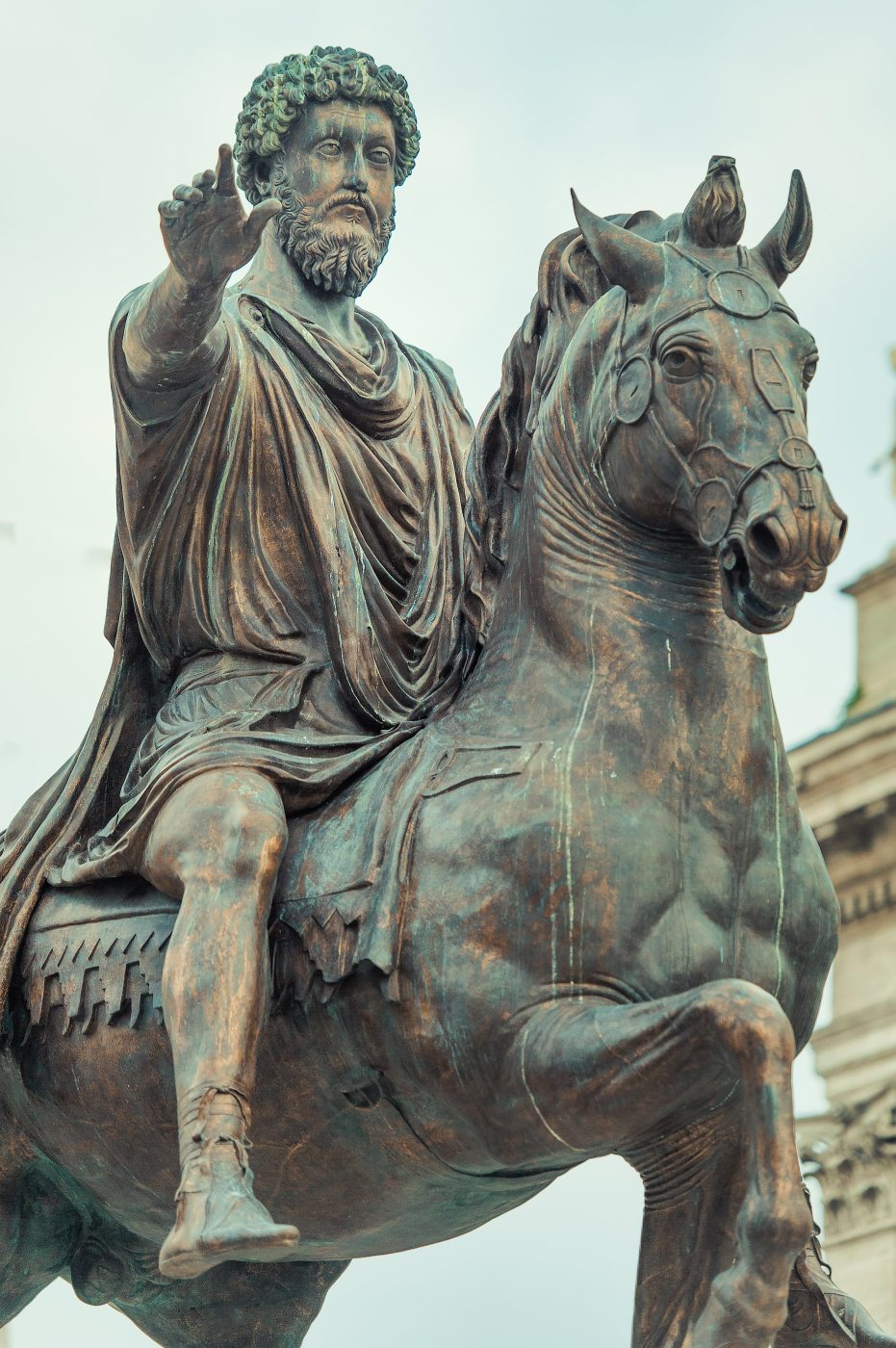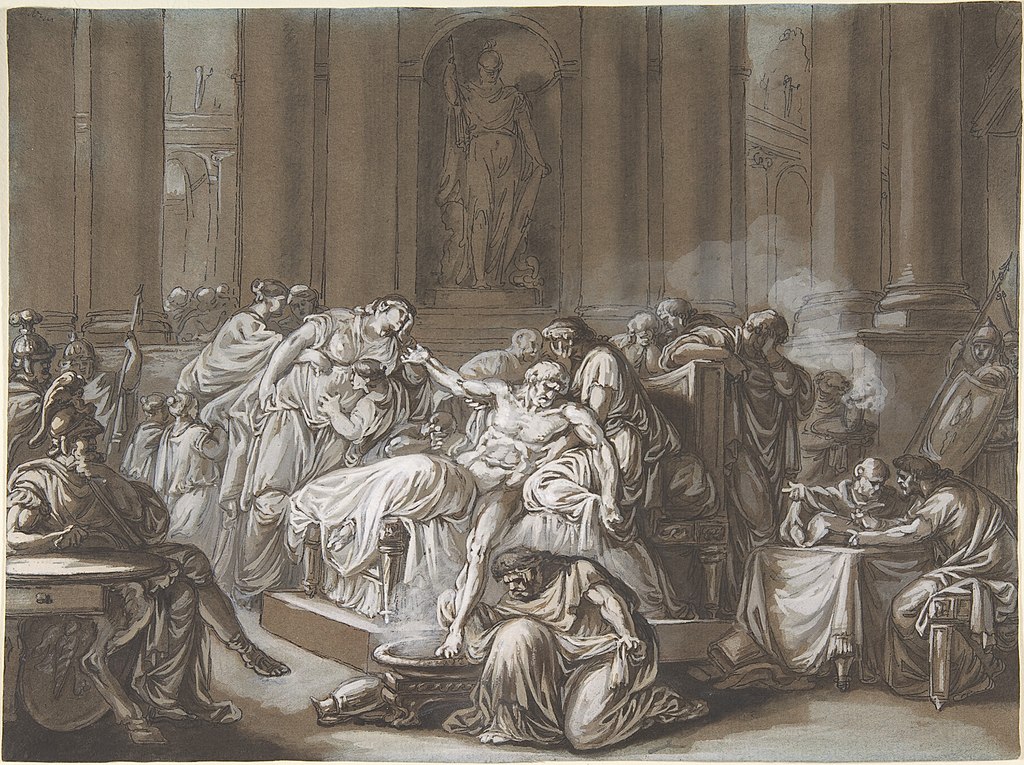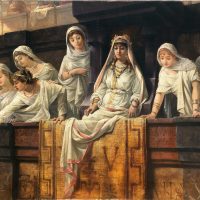In the annals of history, few civilizations have left as indelible a mark as the Roman Empire. At the heart of its leadership, a philosophy emerged, shaping the decisions and actions of its most influential leaders: Stoicism. This ancient Greek school of thought, founded in Athens by Zeno of Citium, found fertile ground in Rome, influencing emperors, senators, and generals alike. But what was it about Stoicism that resonated so deeply with these Roman leaders? And was its influence always for the better?
Perspective: A Guiding Philosophy Promoting Virtue
Stoicism, at its core, teaches the cultivation of virtue and wisdom as the path to true happiness. It emphasizes the importance of accepting things we cannot change and focusing our efforts only on what we can control. For Roman leaders, this philosophy offered a blueprint for governance and personal conduct. Emperors like Marcus Aurelius, often dubbed the “philosopher king,” penned meditations that are still read today, showcasing the profound influence of Stoic thought on his leadership and personal life.

The advantages of Stoicism for Roman leaders were manifold. It provided a moral compass in a world of shifting alliances and power struggles. By emphasizing virtue, it encouraged leaders to act in the best interests of the empire and its citizens. Moreover, the Stoic emphasis on rationality and logic made for more measured and strategic decisions.
However, Stoicism wasn’t without its challenges. Its emphasis on accepting fate could sometimes be misconstrued as passivity. While Stoicism promoted inner peace and resilience, it also risked making leaders complacent in the face of challenges, potentially stunting proactive measures.
Perspective: Sometimes Used as a Mask for Inaction
On the flip side, critics argue that Stoicism, while noble in its ideals, sometimes served as a convenient mask for inaction. The Stoic principle of accepting things outside of one’s control could be twisted to justify neglect or avoidance of pressing issues. Instead of being a guiding light, Stoicism, in these instances, became a shield against accountability.
There were indeed instances where Roman leaders, under the guise of Stoic acceptance, failed to address crises or challenges, leading to detrimental consequences for the empire. This perspective suggests that while Stoicism offered a valuable framework for personal virtue, it was not always perfectly suited for the complex, ever-evolving challenges of leadership.
Yet, even in this critique, there’s an acknowledgment of the inherent value of Stoic teachings. The challenge was in its application, ensuring that the philosophy’s tenets were not misused or misinterpreted.
In Conclusion
The influence of Stoicism on Roman leaders is a testament to the enduring power of philosophy in shaping the course of history. While it provided a robust framework for personal virtue and governance, its interpretation and application were, at times, a double-edged sword. As with any philosophy or ideology, its true value lies in its judicious application, ensuring that its principles serve the greater good.
Marcus Aurelius: The Stoic Emperor and His Guiding Philosophy
In the heart of the Roman Empire, during its golden age, reigned Marcus Aurelius, an emperor unlike any other. His reign, from AD 161 to 180, was marked not just by his political acumen but also by his deep commitment to Stoicism. This philosophy, rooted in the teachings of ancient Greek thinkers, found its most prominent advocate in this Roman leader.

The Meditations and Stoic Teachings
Marcus Aurelius is best known for his personal writings, now called “Meditations”. These were not intended for publication but were personal notes, reflections, and exercises. They offer a window into the emperor’s Stoic beliefs, emphasizing virtues like wisdom, justice, courage, and temperance.
In “Meditations”, Marcus wrote, “You have power over your mind – not outside events. Realize this, and you will find strength.” This Stoic principle of focusing on one’s own actions and reactions, rather than external events, was a guiding force in his leadership.
Challenges of His Reign and Stoic Responses
Marcus Aurelius’s reign was not without challenges. He faced wars on the frontiers, internal conspiracies, and the devastating Antonine Plague. Yet, his Stoic beliefs provided a framework for handling these crises. Instead of succumbing to panic or despair, Marcus approached each challenge with a calm, rational mindset, seeking solutions and accepting what was beyond his control.
However, his Stoic beliefs also faced criticisms. Some felt that his philosophical inclinations made him too passive or introspective at times when decisive action was needed. Yet, it’s undeniable that his Stoic principles helped him navigate the tumultuous events of his reign with a level-headedness rare among leaders.
Seneca and Nero: Stoicism’s Double-Edged Sword in Roman Politics
Lucius Annaeus Seneca, commonly known as Seneca the Younger, was not just a Stoic philosopher but also a statesman, serving as an advisor to the young Emperor Nero. His life and political career provide a unique lens through which we can examine the influence of Stoicism on Roman leaders, especially when that philosophy sometimes served as a mask for inaction or political maneuvering.
The Stoic Advisor to a Troubled Emperor
Seneca’s influence on Nero in the early years of his reign was profound. As Nero’s tutor and later his advisor, Seneca tried to instill Stoic values in the young emperor. He emphasized rationality, self-control, and virtue. However, as Nero’s behavior became increasingly erratic and tyrannical, Seneca’s Stoic principles were put to the test.
Stoicism or Political Expediency?
While Seneca preached Stoic virtues, his actions in the political arena were sometimes seen as contradictory. For instance, after the infamous incident where Nero allegedly caused the death of his mother, Agrippina, Seneca helped draft a letter justifying the act. To many, this seemed less like Stoic acceptance and more like political expediency.
Critics argue that Seneca, under the guise of Stoic detachment, sometimes turned a blind eye to Nero’s excesses or even enabled them. His vast wealth and involvement in the political machinations of the time further muddied the waters between genuine Stoic philosophy and political convenience.
The End of a Stoic Statesman
Seneca’s relationship with Nero eventually soured, leading to his forced suicide on charges of conspiracy. His death, dignified and in line with Stoic principles of accepting one’s fate, was perhaps the most Stoic act of his life.

1. How did Stoicism influence the daily lives and decisions of Roman leaders?
Beyond the grand political decisions, Stoicism deeply impacted the daily lives of Roman leaders. It influenced their personal habits, routines, and interpersonal relationships. Stoic practices, such as journaling and meditation, were adopted by many leaders to reflect on their actions and maintain inner peace. This daily commitment to Stoic principles helped leaders like Marcus Aurelius remain grounded amidst the pressures of leadership.
2. Were there Roman leaders who openly rejected or criticized Stoicism?
Yes, while Stoicism was influential, it wasn’t universally accepted. Some leaders and intellectuals of the time, such as the orator Cicero, although influenced by Stoicism, often critiqued certain aspects of it. They sometimes found it too passive or overly deterministic, preferring a blend of various philosophical schools.
3. How did Stoicism compare to other philosophies popular among Roman leaders?
Roman leaders were exposed to a plethora of philosophies, including Epicureanism, Cynicism, and Neoplatonism. While Stoicism emphasized virtue and acceptance of fate, Epicureanism focused on the pursuit of pleasure and avoidance of pain. Cynicism, on the other hand, advocated for a life in accordance with nature, often rejecting societal norms. Stoicism stood out for its practical approach to life’s challenges, making it particularly appealing to leaders.
4. How did Stoicism influence Roman military leaders and their strategies?
Stoicism had a profound impact on Roman military leaders. The philosophy’s emphasis on discipline, courage, and accepting outcomes beyond one’s control resonated with the uncertainties of warfare. Leaders like Epictetus, who had a military background, often used Stoic principles to guide their strategies, ensuring that decisions were made rationally and not on impulse.
5. How did the spread of Christianity in Rome interact with the Stoic beliefs of Roman leaders?
As Christianity spread in Rome, it interacted with existing Stoic beliefs. Many Stoic principles, such as the emphasis on virtue and the transient nature of life, found parallels in Christian teachings. Some Roman leaders, while adhering to Stoicism, found themselves influenced by Christian ethics. Over time, as Christianity became the dominant religion, Stoic and Christian values often merged, influencing the moral fabric of the Roman leadership.



